Life of a Biomedical Engineer in Canada
What is the life of a Biomedical Engineer in Canada like? Tino Jongwe has moved from Zimbabwe to Australia and is now working as a Biomedical Engineering Technologist in Canada. This article focuses on his experience and views on the biomedical engineering profession. Tino lives in Ottawa and works at The Ottawa Hospital (L’hôpital d’Ottawa).
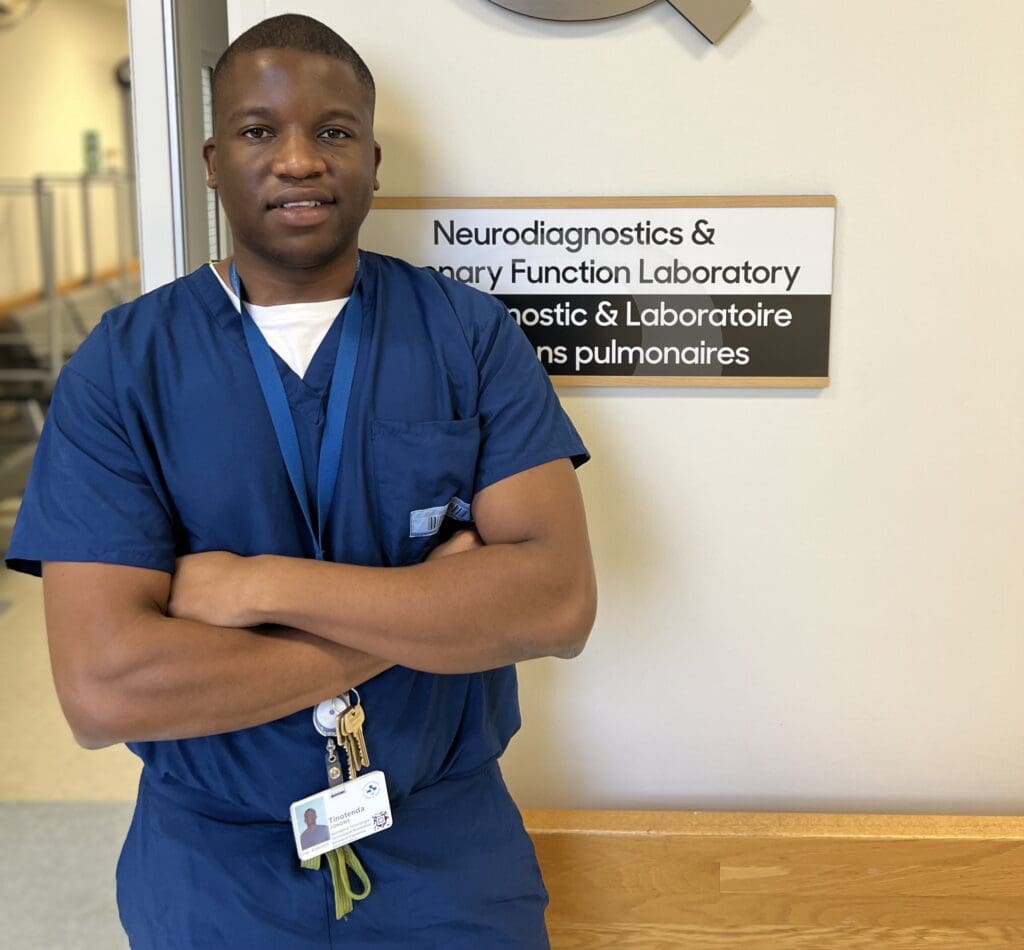

Biomedical Engineering Technologist at The Ottawa Hospital – meet Tino Jongwe
Background
Could you give a brief description of your background and what led you to study and work in engineering? Were there any childhood interests which were a factor?
I was born and raised in Zimbabwe. Growing up my parents were both in the medical field so I suppose there was a great probability that my natural career choice would have most likely been in the medical field. The engineering side of things was influenced by my father, I saw what he did for work but never quite understood it until much later.
Have you always liked knowing how things work?
Somewhat, I suppose I was a curious kid growing up however I don’t have much memory of that.
Have you always liked fixing things?
When I was younger, I recall that I used to do basic things like changing/switching out plugs between appliances at home. Also, I did it with ease, hardly any hesitation at all. However, there were certain things I’d put my hands on and end up breaking them, which is a classic engineer skill.
Has there been a particular person who has inspired you?
I cannot pin-point a single person however I’ve found that I have come across and met different people that have inspired me in several aspects of my life.
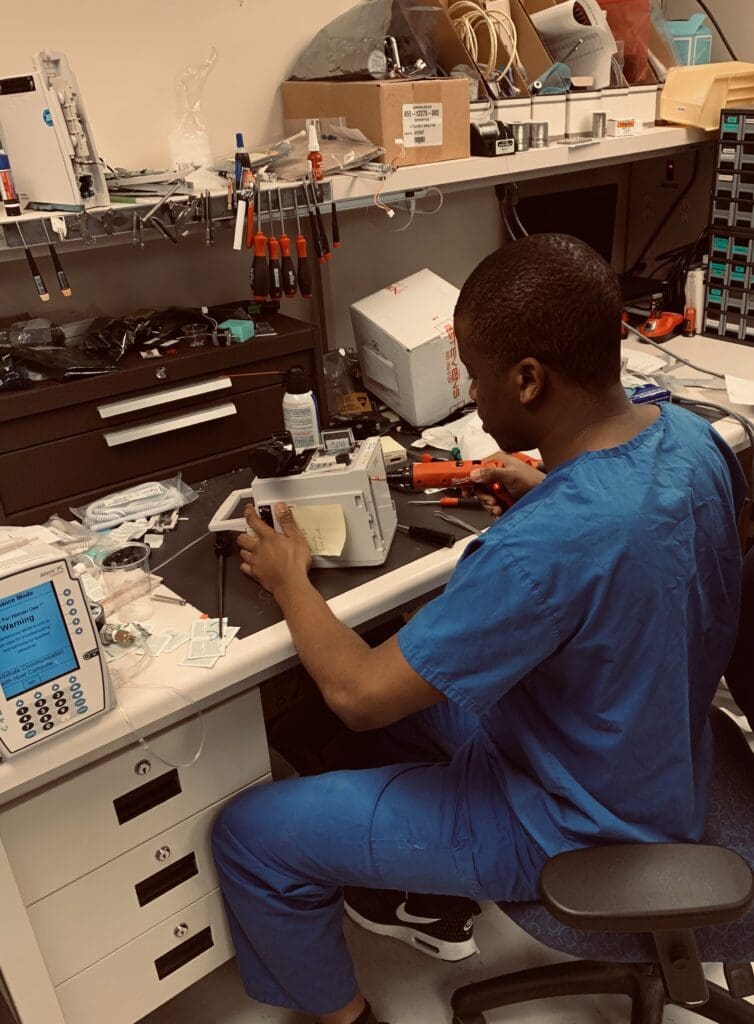

Engineering
Why did you decide to study electronics and biomedical engineering?
Prior to finishing high school, I wasn’t sure what career path I wanted to take but what I did enjoy were numbers and anything related to mathematics. When the time came to apply for university, I put in an application for an Actuarial Science programme as well as another for Biomedical Engineering which my father had suggested and encouraged me to explore.
I ended up choosing to go the Biomedical Engineering route because that was the first offer that I got. At the time, I was just more excited at the idea of leaving home and going to study abroad. Hence that choice.
Why did you choose this over other types of engineering?
I knew of other types of engineering, but I never had much interest in them. In fact, I was never a fan of biology in high school. As stated earlier, biomedical engineering was something that I got to know through my father and after much influence from him, I took it on. Ironically, I got to understand more about it through my studies, and I grew a great liking for it over the years.
In hindsight, I’m glad I chose this type of engineering as its it’s such a broad field. As well, there is a plethora of opportunities and experiences that one can get exposed to and explore. This is the case even more so at an international level.
Relocating internationally during your life as a biomedical engineer
You moved to Australia and then to Canada? What has the adjustment been like for you in terms of:
Climate?
Culture?
Language?
Working style?
Move to Australia
The move to Australia was purely to pursue tertiary education. This move wasn’t so bad, as I have family that lives there so the adjustment was not too hard. I was also in a new country so what could be more exciting than that? As well, I had been in boarding school in all my high school years, so I was used to being away from home.
The climate was great in Australia. To give context, there are parts of the country where one can spend a day at the beach during the winter days.
There was obviously a great aspect of culture shock, but it wasn’t significant, and language was never an issue because English is an official language in my home country. My first working experience was in Australia so that’s all I knew at the time.
At some stage, an opportunity came up to relocate to Canada. I had never really thought about moving elsewhere nor did I ever imagine myself living in North America. However, I packed up my bags and headed to Canada.
Move to Canada
I arrived during the winter, so the weather was brutal for me, it was the first time I saw snow in person. This time around, the adjustment was a lot more difficult for me. The climate was almost opposite to what I had been used to, there was a very different culture and working style to some extent. The language part was not difficult to navigate as English is one the official languages.
Over the years, it got better however I’m not sure if one can ever get used to the snow/cold weather. Rather, one can learn to live with it.
Building a social network
I have been able to build a social network each time for the most part.
In Australia, it wasn’t a big task because myself and a couple of friends from home moved to study at the same university at around the same time, I also had family living there, so they introduced me to their networks.
Canada was a little different, I had to put in a bit of extra effort to establish a social network.
Keeping in touch
How do you keep in touch with friends and family in Zimbabwe (despite the distance and time difference)?
This is a tough one mostly because of the time difference in between and the distance. I find that one must make a conscious effort to keep in touch. However, thankfully technology such as WhatsApp Video calling, and other social media platforms make it a bit easier to keep in touch and to have somewhat of an idea of what’s happening in each other’s lives.
The reality however is such that some friendships will end. You outgrow each other, and you simply lose touch with certain people because you don’t see each other as often. As well you miss out on a lot of life events and milestones. I do try to make a trip back home at least once a year, where I get to catch up with friends and family so I’m grateful for that.
On the flip side, I’m still close with a couple of people despite that we are miles away from each other and haven’t seen each other in a while. Life works weirdly that way.
Working in another country
What sort of personality traits and skills are ideal for an engineer who wants to work in another country?
There are three main ones:
Adaptability,
Eagerness to learn,
Adventurous spirit.
Why would you recommend gaining international experience?
International experience is great because it forces you to step out of your comfort zone. You get the opportunity to learn how things work and how people live in other environments other than what you’re used to. It’s also a great opportunity to improve various skills, and be exposed to new experiences that can set you further ahead in your career and open up opportunities that you wouldn’t normally come across in your home country.
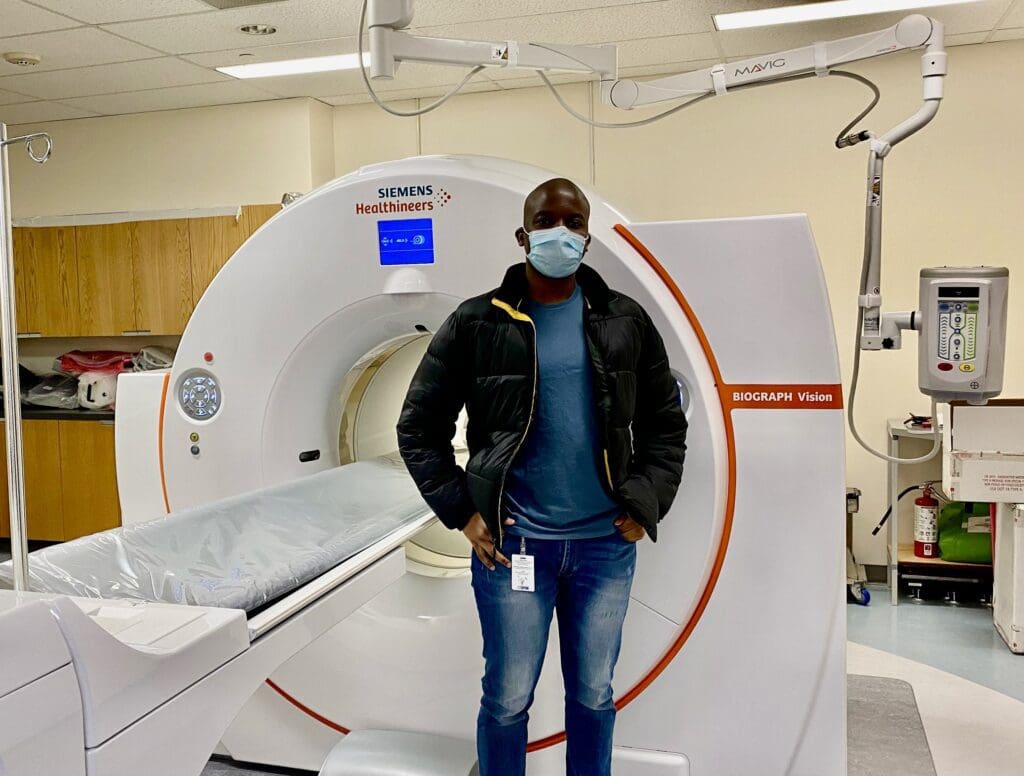

Equipment
What are the types of equipment you work on (and have worked on)?
I have worked and currently work on a variety of equipment located in different parts of the hospital including nursing floors, emergency department, Intensive Care Unit, Cancer Centre, and specialised clinics. To name a few:
Patient Monitors
Defibrillators
Infusion Pumps
Patient Lifts
Bladder scanners
Plethysmography (Pulmonary Function Testing)
ECG/EEG/EMG machines
Nuclear Medicine/ Stress Lab
Imaging (PET, CT, SPECT, General X-ray, BMD)
The challenges of equipment in the life of a Biomedical Engineer
What is the most interesting piece of equipment you have ever worked on?
An ultrasound probe that connected directly into a phone/mobile device enabling the user to perform an ultrasound scan. I was amazed by this innovation.
What has been the most difficult piece of equipment you have ever worked on?
Recently a colleague and I had to upgrade a cardiac monitoring system consisting of a PC which we had to upgrade to a Windows 10 as well as related cardiac monitoring software that we upgraded to the newest version. This then didn’t function as expected after the upgrade was complete. After numerous troubleshooting attempts, engaging the IT department and the vendor, we were finally able to get everything running after a good four months. This was probably one of the most complex scenarios I’ve dealt with to date because of the back and forth between the various stakeholders. Added to that, having to navigate certain organisation policies that are in place which restricted certain features and functionality of this system.
Is there a piece of equipment you would you like to work on?
Most devices are “connected” now so there’s an aspect of IT that Biomeds often deal and work with. I’ve had to deal with quite a lot of IT related issues due to the nature of devices that I currently work with so that’s something I’m actively trying to grow my knowledge in and explore further.
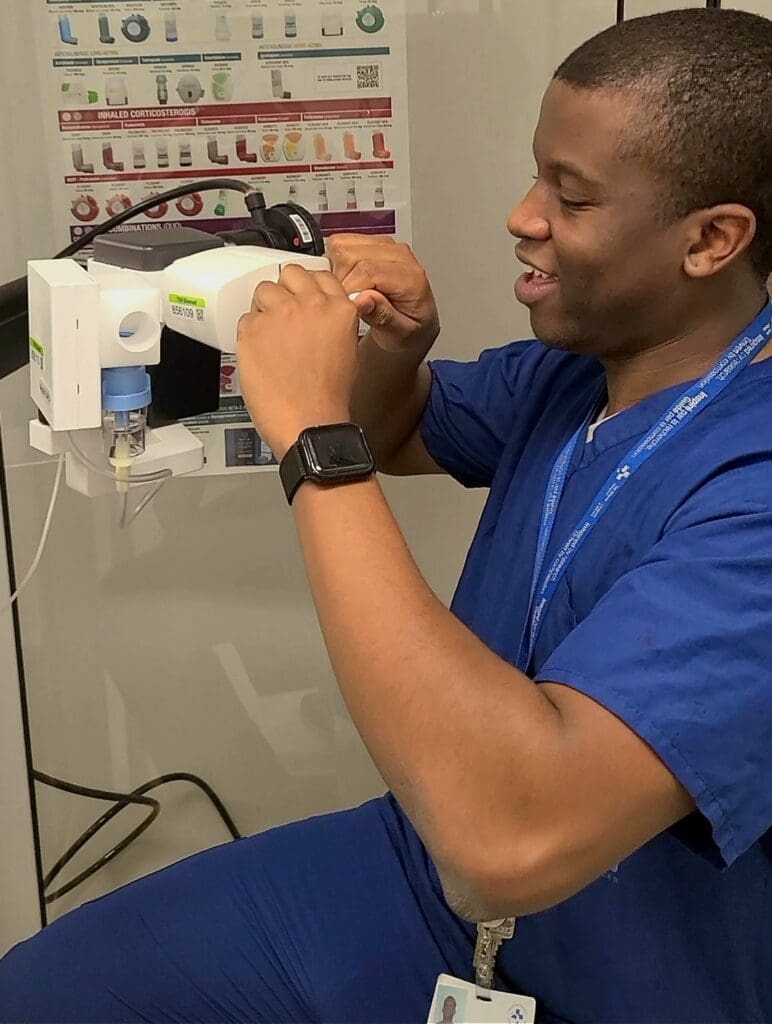

Typical week in the life of a biomedical engineer
What’s your typical week like?
From a hospital-based perspective, every week is different given that there is always something going on.
Some weeks are filled with repairs (corrective maintenance), some preventive maintenance (if I can both locate and get access to the equipment). Whilst, some are purely project work i.e. planning and coordinating an install with the clinical people, unboxing, setting up and installing new equipment. Some weeks are filled with decommissioning of equipment. Whilst some are taken over by administrative tasks such as communication with vendors/ internal stakeholders, inventory and purchasing of spare parts as well as recording/filling out work orders of work completed. Of course, occasionally I have meetings as well.
A lot of weeks are a mixture of a lot of the above things.
How much of your time is spent ‘hands on’ and how much doing other things?
In my experience, I would say I spend about 65% -70% on “hands on” work and 30% on other work-related things i.e., admin related tasks which could be meetings, phone calls, emails etc.
Who gives you support when you need it?
My co-workers, my manager, and other Biomed friends are usually always available to provide me with support whenever I need it and ask for it.
Life of a Biomedical Engineer – sharing knowledge
What are your tips for the best ways to share knowledge and experience with other engineers?
It’s always a great thing to be able to speak to other engineers to bounce ideas off each other. There’s a wealth of information out there and so are there people who have been in the industry for a long time who are a fountain of knowledge. Asking questions, recommendations, advice, and collaborating are great ways to share knowledge and experience in general.
Online platforms such as LinkedIn, YouTube (Believe it or not – check out Better Biomed Channel) and The Field Engineer or similar are great ways to do this as well.
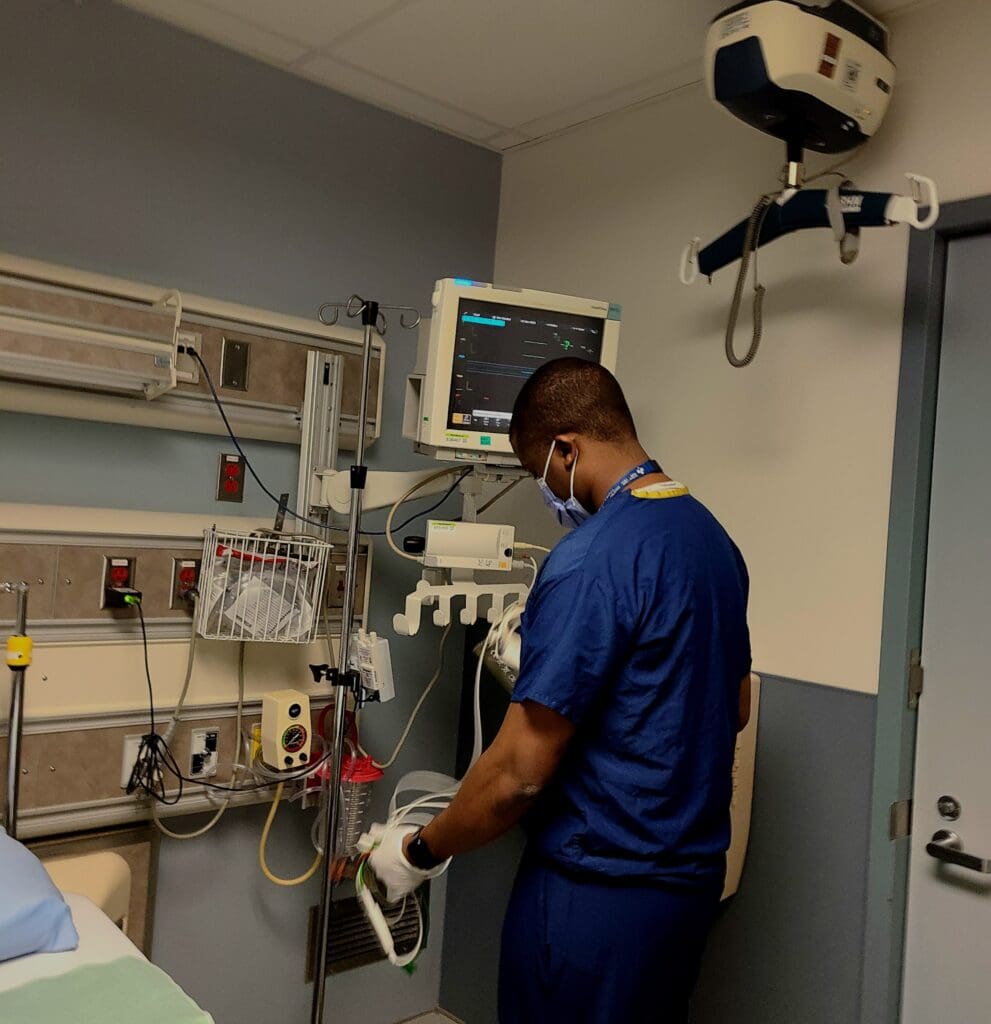

Most challenging part of the job in your life as a biomedical engineer
What do you find most challenging when you are working – technical side or people/customers?
This varies but, in my opinion, and experience, sometimes the technical side of things can be very challenging. For example, trying to troubleshoot during a procedure or in the presence of a critically ill patient. Or something simple such as accessing equipment that is in frequent use particularly in critical care areas such as ICU and Emergency Department
People/customers can also be challenging. This Is because you interact with people with various types of characters and personalities and most of the time you have to adjust accordingly.
What has been your most challenging job to date?
I’d say working in critical care areas has probably been the most challenging for me. Even though it can be stressful and very fast paced, I still enjoy working in such an environment.
Have you ever arrived on site and found that it’s been much easier than you expected? For example, have you just needed to switch on a machine.
Yes, for sure, happens all the time. One instance for example, a nurse reported a vital signs monitor that would not turn on. I went to troubleshoot and after a quick visual inspection, I noticed the power cord was not inserted properly into the machine, easy fix ?
How do you focus on work in the middle of a busy hospital when people are talking to you?
It’s important to identify what needs to be done and be objective. Asking and giving information that is relevant to the task at hand makes it simpler.
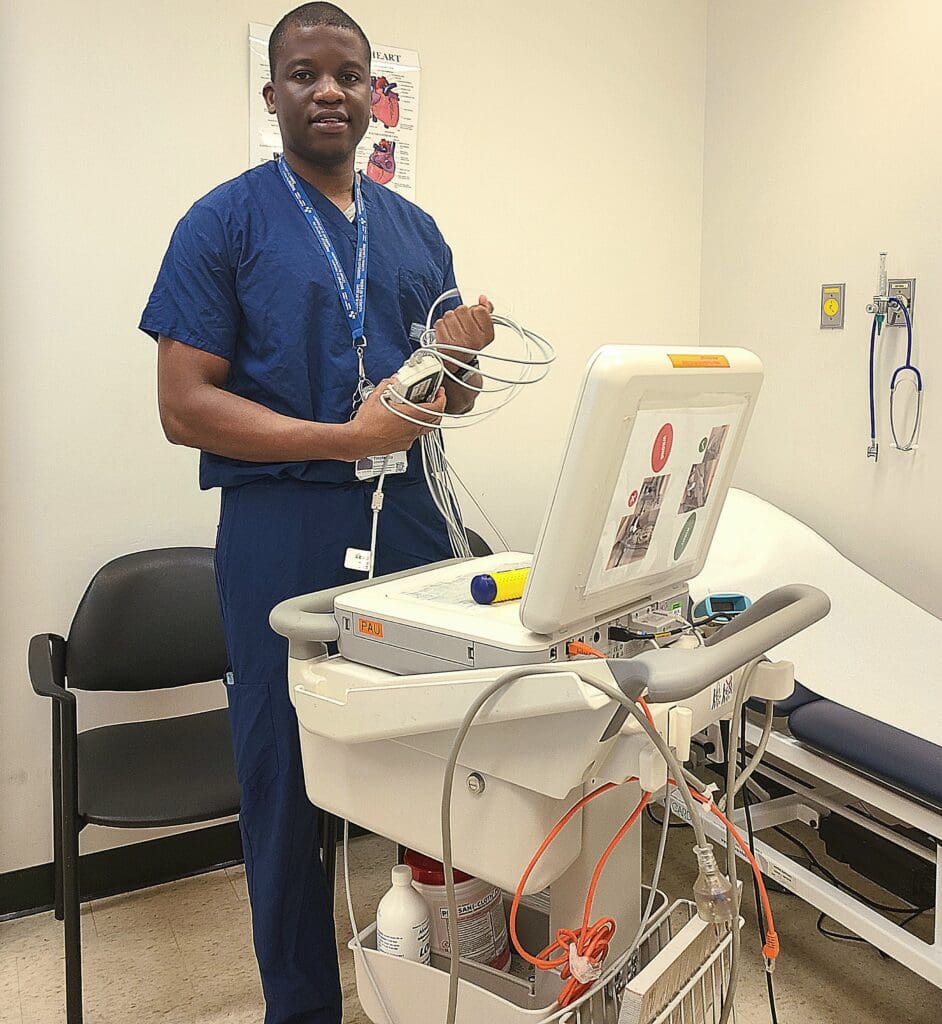

Making a future star
What sort of personality traits and skills are needed to work as a medical field service engineer?
Above average communication skills paired with “people skills” will set you apart in this career field since one often interacts with various groups of people. You’ll often need to know how to navigate certain scenarios while maintaining composure and professionalism even in stressful situations. It is also important to keep learning as the technologies and devices that we work with are constantly evolving. Therefore, there is a need to keep up to date to ensure that one can work proficiently.
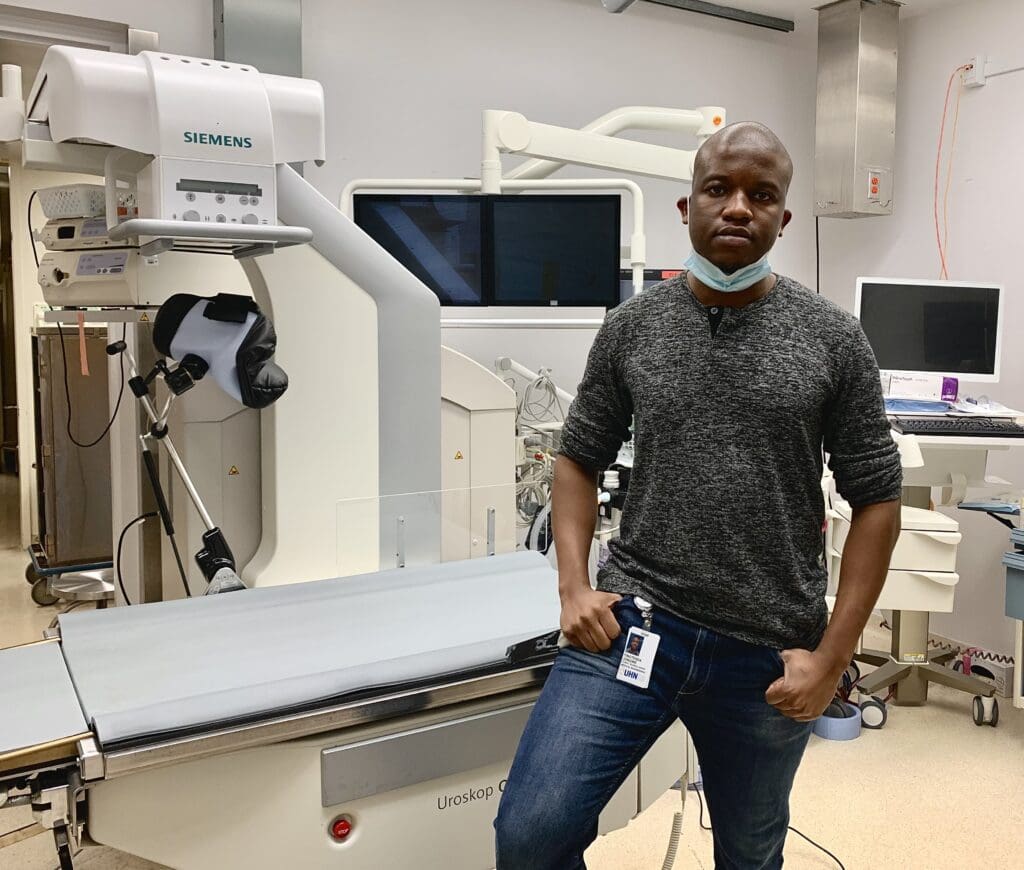

Further reading on the life of biomedical engineers
Who repairs and services the medical equipment in a hospital?


Responses